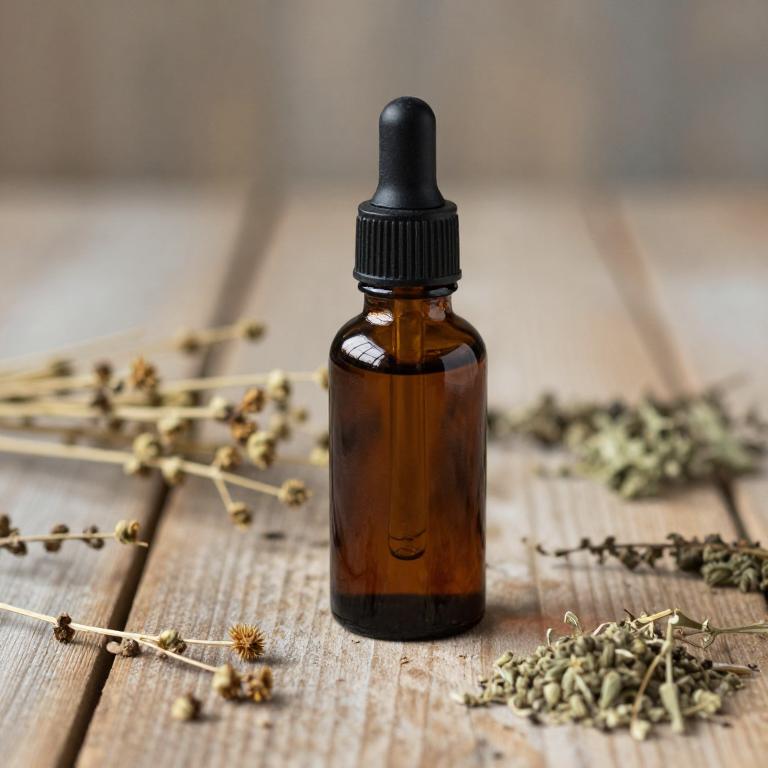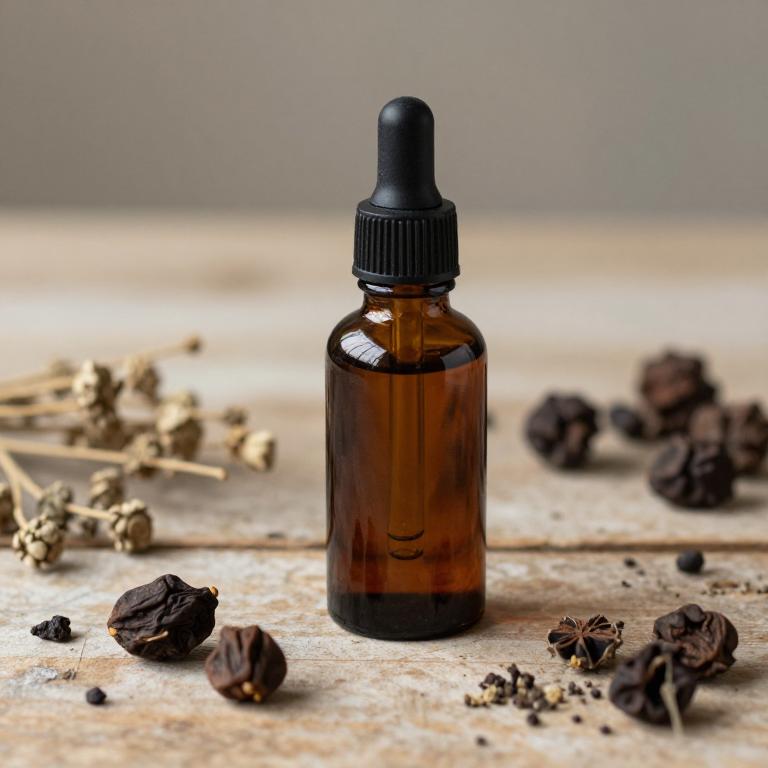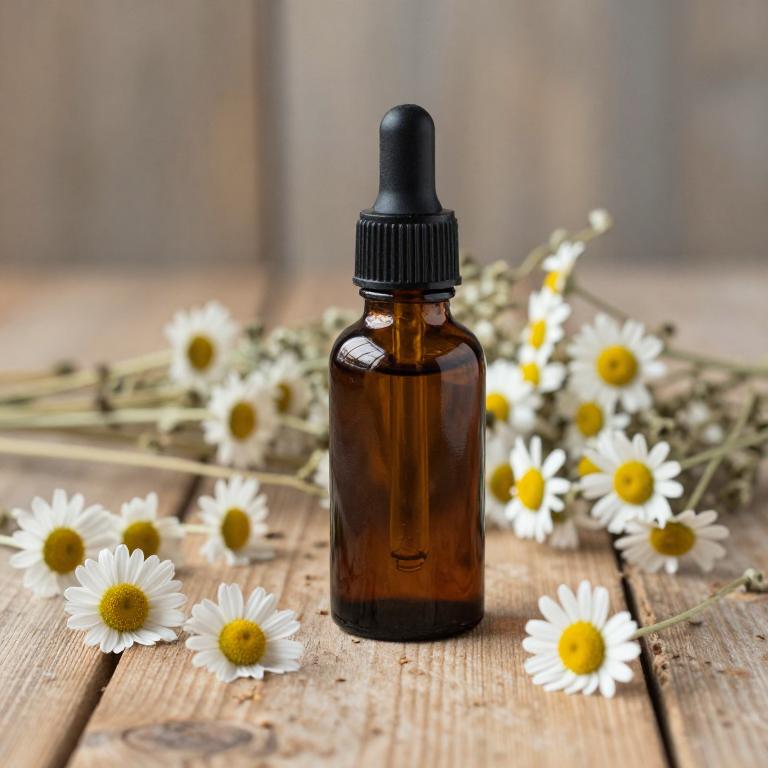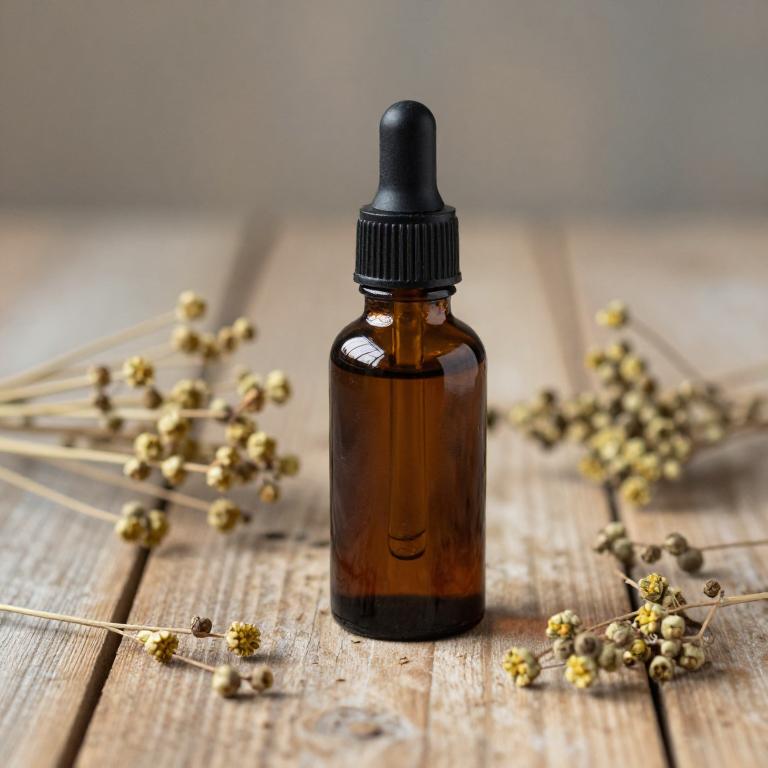10 Best Herbal Tinctures For Indigestion

Herbal tinctures have long been used to alleviate symptoms of indigestion by leveraging the natural properties of various plant-based ingredients.
Commonly used herbs in these tinctures include ginger, peppermint, licorice root, and fennel, all of which are known for their soothing and digestive-stimulating effects. These tinctures work by reducing bloating, easing nausea, and promoting the movement of food through the digestive tract. They are typically prepared by soaking herbs in alcohol or glycerin, which extracts their active compounds for easy absorption.
While generally safe, it is advisable to consult a healthcare professional before using herbal tinctures, especially for individuals with existing health conditions or those taking other medications.
Table of Contents
- 1. Fennel (Foeniculum vulgare)
- 2. Ginger (Zingiber officinale)
- 3. Licorice (Glycyrrhiza glabra)
- 4. Cumin (Cuminum cyminum)
- 5. Thistle (Silybum marianum)
- 6. Turmeric (Curcuma longa)
- 7. Black pepper (Piper nigrum)
- 8. Dog rose (Rosa canina)
- 9. Chamomile (Matricaria chamomilla)
- 10. Caraway (Carum carvi)
1. Fennel (Foeniculum vulgare)

Foeniculum vulgare, commonly known as fennel, is a herb widely used in herbal tinctures to alleviate symptoms of indigestion.
Its essential oils, particularly anethol and fenchone, possess carminative and antispasmodic properties that help reduce bloating, gas, and cramping associated with digestive discomfort. These tinctures are often prepared by soaking dried fennel seeds in alcohol, allowing the active compounds to be extracted for easier absorption by the body. When taken in moderate doses, fennel tinctures can soothe the digestive tract and promote easier digestion, making them a popular remedy in traditional and alternative medicine.
However, it is important to consult a healthcare provider before use, especially for individuals with known allergies or those taking other medications.
2. Ginger (Zingiber officinale)

Zingiber officinale, commonly known as ginger, has been widely used for centuries to alleviate symptoms of indigestion due to its anti-inflammatory and carminative properties.
Ginger herbal tinctures are concentrated liquid extracts made by soaking the dried root in alcohol, which helps preserve the active compounds such as gingerol and shogaol. These tinctures can help reduce nausea, bloating, and stomach discomfort by stimulating digestive enzymes and relaxing the gastrointestinal tract. They are often recommended as a natural remedy for mild to moderate indigestion, particularly after meals or when experiencing motion sickness.
However, individuals with certain health conditions or on medications should consult a healthcare provider before using ginger tinctures.
3. Licorice (Glycyrrhiza glabra)

Glycyrrhiza glabra, commonly known as licorice root, has been traditionally used in herbal medicine for its soothing effects on the digestive system.
Licorice root tinctures are often employed to alleviate symptoms of indigestion, such as bloating, nausea, and heartburn, due to their demulcent properties that coat and protect the stomach lining. The active compounds in licorice, including glycyrrhizin and flavonoids, may help reduce inflammation and promote the production of digestive enzymes. However, long-term use of licorice tinctures can lead to side effects like hypertension and fluid retention due to its effect on the adrenal glands.
As a result, it is advisable to consult a healthcare professional before using licorice tinctures, especially for individuals with pre-existing health conditions.
4. Cumin (Cuminum cyminum)

Cuminum cyminum, commonly known as cumin, is a popular herb used in traditional medicine for its digestive benefits.
Cumin herbal tinctures are concentrated liquid extracts made by soaking the dried seeds in alcohol, which helps preserve the active compounds. These tinctures are often used to alleviate symptoms of indigestion, such as bloating, gas, and nausea, due to their carminative and antispasmodic properties. The essential oils in cumin, including limonene and cineole, contribute to its effectiveness in promoting healthy digestion.
When used as directed, cumin tinctures can serve as a natural and supportive remedy for occasional digestive discomfort.
5. Thistle (Silybum marianum)

Silybum marianum, also known as milk thistle, is a herbal remedy commonly used in the form of tinctures to support digestive health.
These tinctures are believed to aid in indigestion by promoting the production of bile, which is essential for the digestion of fats. The active compound, silymarin, is thought to have hepatoprotective properties that may enhance liver function, thereby improving overall digestion. Many people use milk thistle tinctures as a natural alternative to conventional digestive aids, often in combination with other herbs.
However, it is important to consult a healthcare professional before starting any herbal treatment, especially for those with existing health conditions or taking other medications.
6. Turmeric (Curcuma longa)

Curcuma longa, commonly known as turmeric, is a widely used herbal remedy for digestive issues, particularly indigestion.
Its active compound, curcumin, possesses potent anti-inflammatory and antioxidant properties that can help reduce stomach irritation and improve digestion. Turmeric tinctures are concentrated liquid extracts made by soaking the dried rhizome in alcohol, making them easy to absorb and use. These tinctures are often recommended for their ability to soothe the gastrointestinal tract and alleviate symptoms like bloating and nausea.
When taken regularly, curcuma longa tinctures may support overall digestive health and complement other natural remedies for indigestion.
7. Black pepper (Piper nigrum)

Piper nigrum, commonly known as black pepper, has been traditionally used in herbal medicine for its digestive benefits.
When prepared as a tincture, black pepper extract can help stimulate digestive enzymes and improve nutrient absorption. The active compound, piperine, is believed to enhance the effects of other herbs and promote healthy digestion. Piper nigrum tinctures may be particularly useful for individuals experiencing bloating, gas, or sluggish digestion.
However, it is important to consult with a healthcare professional before using herbal tinctures, especially if you have underlying health conditions or are taking other medications.
8. Dog rose (Rosa canina)

Rosa canina, also known as dog rose, is a traditional herbal remedy that has been used for centuries to support digestive health.
Its tinctures are prepared from the flowers and hips of the Rosa canina plant, which are rich in bioactive compounds such as flavonoids, tannins, and vitamin C. These tinctures are often used to alleviate symptoms of indigestion, including bloating, gas, and mild stomach discomfort. The anti-inflammatory and astringent properties of Rosa canina may help soothe the gastrointestinal tract and improve digestion.
When taken as directed, Rosa canina tinctures can be a gentle and natural option for those seeking relief from occasional digestive issues.
9. Chamomile (Matricaria chamomilla)

Matricaria chamomilla, commonly known as chamomile, is a popular herbal remedy used to alleviate symptoms of indigestion.
Chamomile tinctures are prepared by soaking the dried flowers in alcohol, creating a concentrated form of the plant's active compounds. These tinctures are valued for their calming and anti-inflammatory properties, which can help soothe the digestive tract and reduce bloating, gas, and stomach discomfort. The essential oils in chamomile, such as bisabolol and chamazulene, contribute to its effectiveness in easing digestive issues.
When used as directed, chamomile tinctures can be a natural and effective option for managing mild indigestion and promoting digestive wellness.
10. Caraway (Carum carvi)

Carum carvi, commonly known as caraway, has been traditionally used in herbal medicine to aid digestion and relieve symptoms of indigestion.
Caraway seed tinctures are made by soaking the dried seeds in alcohol to extract their essential oils, which contain compounds like limonene and apiol that have carminative and antispasmodic properties. These tinctures can help soothe bloating, reduce gas, and ease discomfort associated with indigestion by stimulating the digestive process. They are often recommended as a natural alternative to over-the-counter remedies for those seeking herbal support for digestive health.
However, it is important to consult with a healthcare provider before using caraway tinctures, especially for individuals with existing medical conditions or those taking other medications.